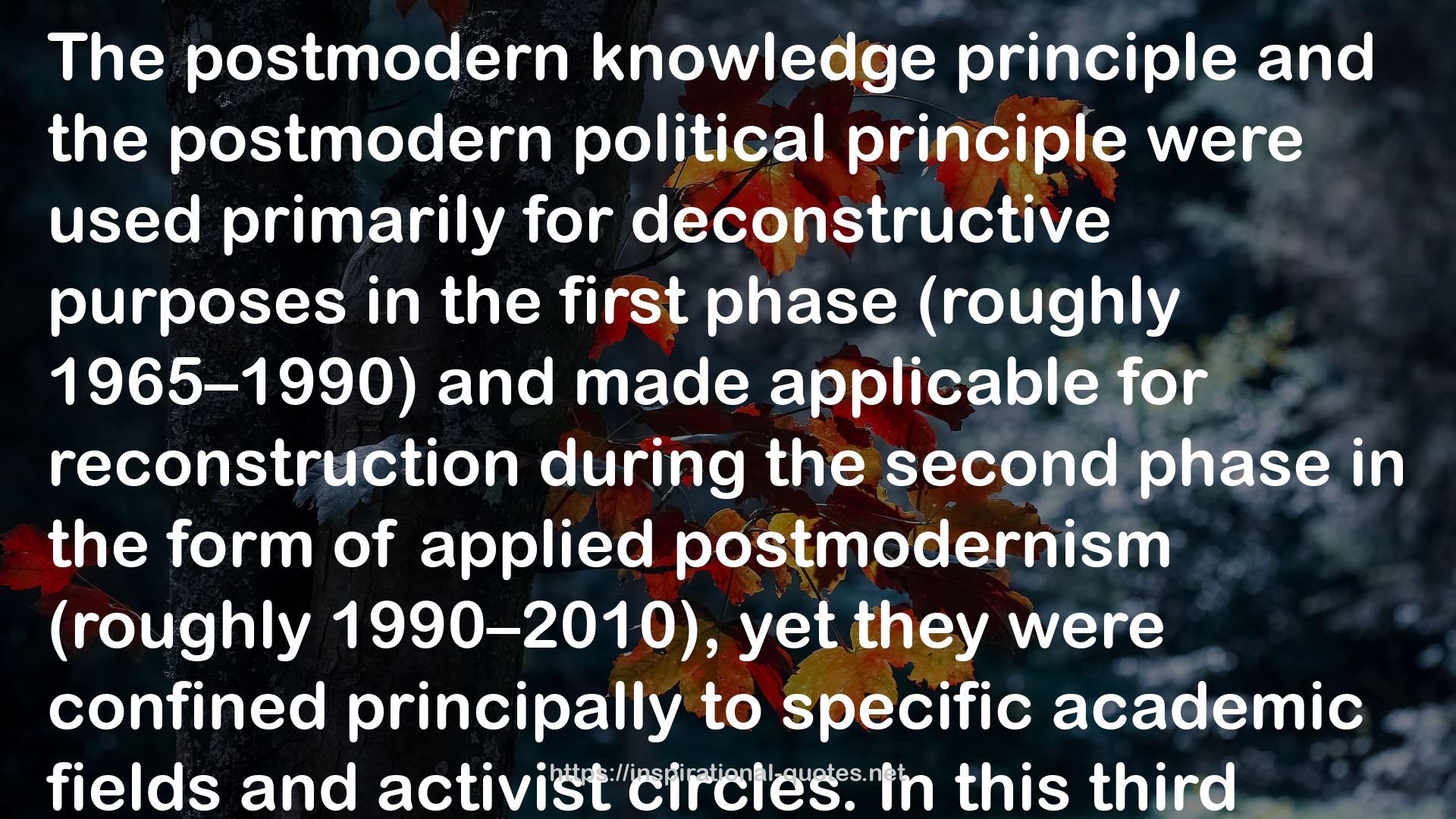" The postmodern knowledge principle and the postmodern political principle were used primarily for deconstructive purposes in the first phase (roughly 1965–1990) and made applicable for reconstruction during the second phase in the form of applied postmodernism (roughly 1990–2010), yet they were confined principally to specific academic fields and activist circles. In this third phase of postmodernism, these principles are treated as fundamental truths both within these two settings and beyond. After decades of being treated like knowns within sectors of academia and activism, the principles, themes, and assertions of Theory became known-knowns—ideas taken for granted as true statements about the world that people “just know” are true. The result is that the belief that society is structured of specific but largely invisible identity-based systems of power and privilege that construct knowledge via ways of talking about things is now considered by social justice scholars and activists to be an objectively true statement about the organizing principle of society. Does this sound like a metanarrative? That’s because it is. Social Justice scholarship and its educators and activists see these principles and conclusions as The Truth According to Social Justice—and they treat it as though they have discovered the analogue of the germ theory of disease, but for bigotry and oppression. "
― Helen Pluckrose , Cynical Theories: How Activist Scholarship Made Everything about Race, Gender, and Identity—and Why This Harms Everybody
